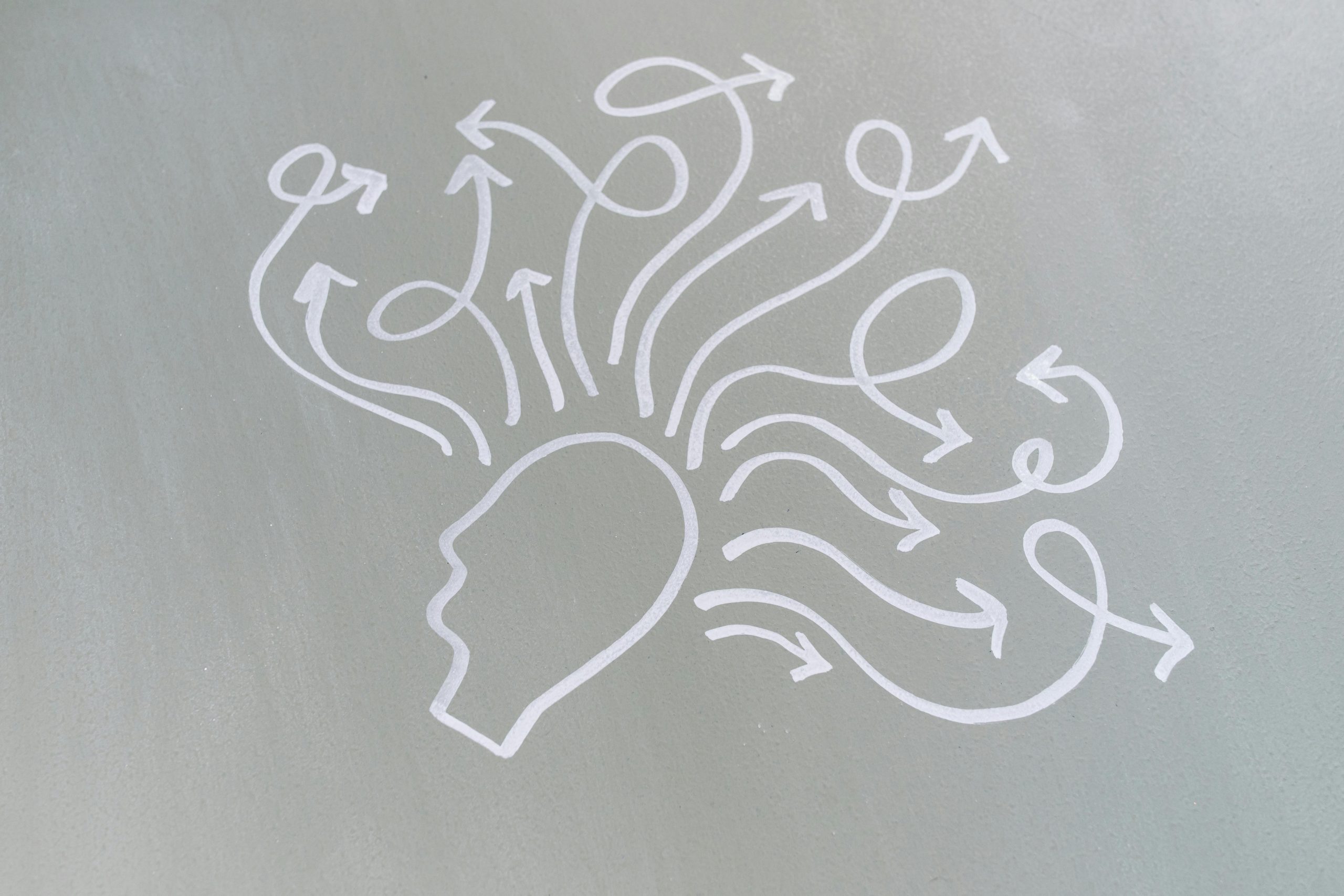The stress response is an intricate and innate feedback
mechanism vital for survival in times of emergencies.
It is best when activated sparingly so that the body can
quickly return to a state of balance.
However, when the body is in a state of sympathetic dominance
or ‘fight or flight’ for extended periods this chronic stress
can have detrimental repercussions including sleeplessness,
anxiety, irritability, digestive issues, poor immunity, mood
disorders and disease states. Maintaining a healthy stress
response and quickly returning to parasympathetic ‘rest and
digest’ mode is necessary for overall health and well-being plus
good quality sleep.

Mechanism of action
The sensory nerves detect environmental stress and regulate the HPA axis by providing a neuroendocrine link between perceived stress and physiological reactions to stress. Soon after the initial ‘run from danger’ release of hormones
such as epinephrine and norepinephrine as a response to the perceived stress the adrenals produce cortisol, which releases glycogen from the liver and muscles for fast glucose fuel for energy.
Blood sugar imbalances may lead to cravings for unhealthy food and drink choices to cope with daily stress. In turn this can make it challenging to maintain a healthy weight, potentially leading to more stress and cortisol release.
Choices made in the day can impact how you sleep that night.
Upon waking, cortisol levels usually increase quickly and gradually drop throughout the day. With HPA axis dysregulation, cortisol levels can remain high until evening, and this can disrupt sleep – leading to a vicious cycle of stress, sugar and caffeine dependence. The consumption of alcohol can give the impression of unwinding and sleepiness. Due to increased GABA levels, it is possible to fall asleep initially, but REM sleep is suppressed which is crucial for emotional processing, healthy mood and cognition. As alcohol is metabolised, it can become stimulating to the brain and leads to sleep disruptions and restlessness later in the night.
The latest research on anxiety and stress-related issues has focused on the gut–brain axis and the ability of certain probiotic strains (psychobiotics) to support healthy neural cytokine activity and healthy levels of serotonin – making the microbiome a critical component of overall mental and emotional wellness.
Identifying stressors to find the best recommendations
Stressors can often result in universal emotions of grief, sadness or fear; however, these are not restricted to life changing events such as a death of a loved one or job loss, etc. Any situation or underlying thought process has the potential to be stressful if not acknowledged and dealt with. It is also vital to address other stressors or factors that can burden cells such as chemicals in processed foods, imbalanced macronutrient intake, micronutrient deficiencies, high toxic loads from nicotine and environmental pollutants, heavy metal exposure, leaky gut, compromised microbiome, inflammation/ pain, hormonal imbalances, inadequate/excessive exercise and shallow breathing.
The nervous system and HPA axis can be supported no matter what the stressor is.
Nurture your nervous system
The healthy function of the nervous system relies heavily on the intake of essential nutrients via diet or supplementation. Among these vital nutrients, magnesium plays a crucial role. It is essential for transmitting nerve signals and preventing
excessive excitation that can lead to the death of neuronal cells. Notably, magnesium L-threonate crosses the blood– brain barrier, providing specialised support for neurological functions. Magnesium glycinate supports sleep by calming the nervous system, thanks to the presence of glycine. Additionally, magnesium citrate supports the Krebs cycle, thus contributing to energy production. B vitamins are also essential for the nervous system. They support nerve endings, neurological health, stress response, hormonal balance and detoxification processes. Recent research suggests that maintaining healthy vitamin D levels is important as it supports healthy cortisol production within abdominal adipocytes. Another key nutrient, L-theanine, aids in supporting GABA and brain alpha-wave activity, promoting a relaxing effect within the sympathetic nervous system. 5-HTP serves as a precursor to serotonin and then melatonin, contributing to good mood, sound sleep, healthy blood glucose levels and insulin function. Adequate serotonin levels can also help reduce cravings for high-carbohydrate foods and drinks. Chromium is an important mineral for supporting blood sugar balance and reducing cravings, especially if a deficiency is present. Taurine is another valuable nutrient that provides antioxidant protection for the brain and supports GABA production. It also plays a role in safeguarding the brain from excess glutamate, alongside magnesium, zinc and B6.
In addition to these nutrients, botanicals like lemon balm, lavender, magnolia, chamomile, and passionflower are known as nervines and help to support the nervous system.
Nourish your adrenals and support your HPA axis Nutrients: vitamin B5 and C are needed in adequate amounts by the adrenal glands to function.
Adaptogenic herbs: ashwagandha, Siberian or Korean ginseng,
Schisandra, Rhodiola, holy basil, Astragalus and medicinal mushrooms such as cordyceps.


Adrenal tissue: supports the synthesis of corticosteroids including healthy cortisol level for the severely compromised
Phosphatidylserine (PS): this component of cell membranes is important for receptor-mediated interactions which ‘dampen’ hypothalamic signalling and support the stress response
Stress & Gut Brain Axis: psychobiotics Bifidobacterium longum 1714™ & 35624®, Lactobacillus helveticus Rosell®-52 and B. longum Rosell®-175 are extensively researched for their support of healthy mood via cortisol and serotonin production
Stress & Pain: supporting a healthy inflammatory response to support pain can positively impact stress and sleep disturbance. Consider: white willow, Boswellia, CurcuWIN™ turmeric extract, saffron, glucosamine & chondroitin sulfates, MSM, hyaluronic acid and PEA
Stress and Low Oestrogen: low oestrogen levels (e.g., during peri/ menopause) are a factor in increasing stress via sleeplessness, hot flushes or conception issues. Herbal support includes shatavari, black cohosh, St John’s wort, Rehmannia and red clover
Lifestyle recommendations
Small incremental changes in lifestyle can have a positive impact on overall health and wellbeing. Intentional breathing, focusing on diaphragmatic breathing, is a rapid way to signal to the body that it is in a safe environment, facilitating a shift towards parasympathetic dominance.
Embracing a diet of real, nourishing food can begin the day with a protein-rich smoothie, containing fibre, good fats, greens, and appropriate fruits, thereby supporting healthy blood glucose levels. Regular exercise, encompassing activities like walking in nature, yoga, dancing, tai-chi, or swimming, can effectively support the body’s stress response.
From a mental health perspective, engaging in open conversations with trusted individuals or professionals, following the age-old adage that ‘a problem shared is a problem halved’, can offer fresh perspectives and alleviate stress. Finally, engaging in a meditation that resonates with you provides a means to observe and detach from negative thought processes, reinforcing the understanding that one is
not defined by their thoughts.
To ensure a restful night’s sleep, it’s important to establish a regular sleep schedule and adhere to proper sleep hygiene, including avoiding screens for at least an hour before bedtime. Caffeine and alcohol intake should be monitored, especially if you’re sensitive to these substances. Managing hunger at nighttime by consuming a small serving of complex carbohydrates, such as a third of a banana, can help.
Additionally, soaking in the morning sunlight for at least 10 minutes by walking outside or looking out the window can boost serotonin levels, which in turn supports melatonin production when evening falls.
Functional medicine as a valuable ally.
By addressing the root causes of sleep disturbances and stress, functional medicine can help individuals achieve better sleep and reduce the burden of stress on both the body and mind.
Through a combination of lifestyle adjustments, nutritional support, and the use of natural remedies, an integrative approach not only enhances sleep quality but also promotes a healthier, more balanced life, fostering long-term vitality and resilience.
Stress and Sleep Support
Easily search Stress and Sleep Support Products on our Practitioner Hub under the ‘Filter By Condition’ dropdown. For a comprehensive guide to FxMed Stress, Mood and Sleep Support products and resources, check out our Stress, Mood and Sleep Support Booklet today!
Share:
Related Posts

Why Would I Test Positive To Foods On A Dietary Antigen Test That I Don’t Eat?
Written by Precision Point Diagnostics | 2025 True food allergies are when the body develops antibodies against a particular food, or a related food. Patients

Mitochondria: The Overlooked Link in the Gut-Brain Axis
Written by Dr Sarah Daglis | 2025 The gut-brain axis is well-established, but there’s more to this dynamic relationship than meets the eye. A vital

Unlocking Respiratory Resilience Through Functional Medicine
Article written by Dr Michelle Clark Naturopathic Doctor Clinical Education Manager, FxMed Published 1 September 2024 People take supplements to improve or optimize their health.

AHCC: Unlocking the Immune Intelligence of Shiitake Mycelia
Article written by Jessica Sanders BSc. (Psy), Dip Nat, Dip Med Herb Technical Projects, FxMed Published 1 September 2024 People take supplements to improve or

Life After Weight Loss Meds
Kathi Head, ND February 20, 2025 You would have to have been spending glorious hours lying on the beach on a desert island not to


